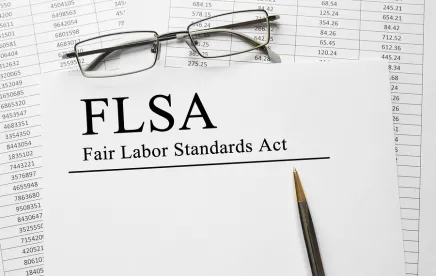The Family and Medical Leave Act requires employers with 50 or more employees to permit eligible employees to take covered unpaid medical or caregiver leave. How can an employer respond when an employee approved to take FMLA leave is later suspected of taking FMLA leave for an improper purpose, such as to moonlight at another job, go on vacation, or avoid undesirable work assignments?
Nothing in the FMLA statute or regulations prevents employers from ensuring that employees who are on leave from work do not abuse their leave. Fraud and dishonesty in the use of FMLA leave may be grounds for termination of employment. An employer suspecting FMLA fraud or abuse may investigate and take action to deter future FMLA abuse. Below are several options to consider:
-
Interviewing the Employee. Employers can investigate suspicious circumstances suggesting FMLA abuse by interviewing employees about their actions and whereabouts on the day(s) in question. Before interviewing the employee, the employer may gather publicly available information (e.g., social media) about the employee’s relevant activities. Other employees who may have witnessed relevant events may also be interviewed.
An employee’s inability to explain, or lack of credibility when explaining, his or her relevant actions or whereabouts may support a finding that the employee has lied or engaged in FMLA misuse. When interviewing an employee in this context, it is suggested to consult with counsel to ensure the questions do not include prohibited medical inquiries or discourage or interfere with the legitimate taking of FMLA leave.
-
Private Investigation. Surveillance by a private investigator can document an employee’s physical movements and activities inconsistent with the taking of FMLA leave. Engaging counsel can help to ensure a proper scope of surveillance and that the employer is presented with appropriate facts upon which to assess the suspicion of FMLA fraud or abuse.
-
Recertification. Employees who take intermittent FMLA in a pattern (e.g., every Friday) or under objectively suspicious circumstances (e.g., several employees take FMLA leave on the day after the Super Bowl) may be required to recertify the taking of FMLA. Although employers cannot challenge the medical opinions of the employees’ health care providers as part of recertification, the recertification request may deter future FMLA abuse. If recertification is not timely provided, FMLA can be denied. Recertification may be requested in conjunction with an employee interview or surveillance.
Experienced counsel can guide employers through the strategic use of these and other techniques to investigate and deter FMLA fraud and abuse.




 />i
/>i

